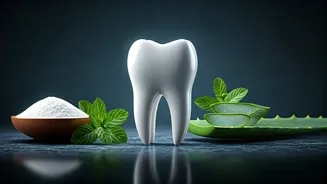Emotional Bonds' Power
The cornerstone of successful ageing often revolves around the depth and strength of our emotional connections. Research underscores the vital role of these
relationships, indicating that those who cultivate meaningful bonds tend to experience a more fulfilling and extended life. This involves nurturing strong connections with friends, family, and partners, making them a priority. These relationships provide emotional support, a sense of belonging, and a reason to engage actively in life. They also serve as a buffer against stress and loneliness, which can significantly impact health and well-being. Ultimately, investing in and cherishing emotional bonds is a key ingredient in the recipe for successful ageing. It's about recognizing that we are social creatures, and thriving depends on our ability to create and sustain supportive networks that nourish our emotional and physical needs.
Women's Longevity Insights
The narrative of ageing and longevity presents differently for women. Their journey through later life is often more intricate. Biological factors, social roles, and lifestyle choices intertwine to shape their experiences. Understanding the complex interplay of these elements is crucial for a complete picture. Research suggests that women's longevity is not a singular path but a mosaic of various influences. This highlights the importance of tailored healthcare, community support, and societal policies that recognize and address the specific needs of older women. Their resilience, adaptability, and the ways they build support systems contribute significantly to their well-being. Furthermore, examining their healthcare needs, socio-economic status, and access to resources is crucial. The understanding of women's longevity calls for a holistic approach.
Men and Marriage
Marriage has a profound and distinct impact on men's longevity. Studies indicate that married men tend to live longer and experience better health outcomes. The reasons are multifaceted. Marriage offers men a structured lifestyle, emotional support, and the encouragement to adopt healthier habits. The presence of a spouse often leads to increased social integration, which combats feelings of isolation and loneliness. Furthermore, a spouse can act as a primary caregiver, especially during times of illness, and help navigate the healthcare system. The benefits are less pronounced in the absence of marriage, underlining the significance of committed partnerships for men's overall well-being. Understanding this gendered dynamic is key to promoting healthy ageing. It reinforces the value of building and maintaining healthy marital relationships for men's long-term health.
Marriage and Lifespan
Delving deeper into the effects of marriage on lifespan, scientists have uncovered a gendered twist. While the benefits of marriage are evident for men, the impact on women is not as consistently positive. For men, marriage often leads to improved health habits, social support, and enhanced overall well-being, contributing to a longer life. However, women may face added responsibilities within a marriage, which could affect their health. It's important to remember that this isn't a simple case, and various factors come into play. Socioeconomic status, the quality of the relationship, and individual lifestyle choices also shape health outcomes. Scientific exploration provides valuable insights to create a nuanced understanding. It stresses that one must consider several personal conditions that contribute to an individual's wellbeing.
New Longevity Formula
This article discusses an updated perspective on longevity. This new formula moves away from simple metrics and focuses on a more holistic approach. This might encompass elements such as emotional well-being, social connectedness, and the capacity to adjust and change. It suggests that a long, fulfilling life is not solely about living longer. It also covers the importance of maintaining an active lifestyle, continuous learning, and adapting to life's changing circumstances. The concept stresses a commitment to nurturing meaningful relationships, fostering a sense of purpose, and addressing health proactively. This modern perspective on longevity acknowledges that ageing is not a singular event. It's a continuous process that can be actively shaped by our decisions and the lifestyle choices we make.













